 In his first Knesset address, newly-elected Yahadut Hatorah MK Rav Yaakov Asher, a former mayor of Bnei Brak, warned Yesh Atid leader MK Yair Lapid that his share the burden comments and position are tantamount of calling for a civil war.
In his first Knesset address, newly-elected Yahadut Hatorah MK Rav Yaakov Asher, a former mayor of Bnei Brak, warned Yesh Atid leader MK Yair Lapid that his share the burden comments and position are tantamount of calling for a civil war.
Asher began by explaining that despite being a new face in Knesset, he has already devoted 24 years of his life to public service, amassing considerable experience.
“I come from the work of doing. I come from a place where one is required to show receipts for his action and inaction alike, both on a daily basis and the long-term” stated Asher.
“A mayor’s impressive oratory skills will not help if he is incapable of standing behind those words with actions for the city and its residents. He will not receive certificates attesting to his mayoral capabilities in various areas or attesting to his level of his expertise if his words do not translate into actions.
“Mr. Speaker, in the world of doing from which I come, I always viewed my responsibilities as having to serve everyone, from all walks of life, all population groups in my community, working towards unity and harmony and towards avoiding dispute and coercion.
“I direct my efforts to all equally, and allocated city social and other recourses without consideration for one’s way of life, one’s beliefs or one’s belonging to one sector or another. Thousands will bear witness to the improvements and growth in the city – such as the unique educational programs in all areas of the city, including areas not maintaining an Orthodox lifestyle. These areas also received my attention as well as being upgraded and improved like the others.
“This is the true measure of doing without seeking banner headlines. Bnei Brak Baruch Hashem has come a long way, from a city with a troubled budget to a city that is now independent, capable of standing up on its own, a progressive city that provides all services for all its citizens in a suitable fashion.”
Rav Asher continues, now addressing MKs, explaining that from his perspective, there is no difference between the local and national level from a conceptual perspective, with both demanding total commitment and one determination to carry out one’s responsibilities in a non discriminatory fashion.
Asher mentions Yesh Atid rookies MKs Yael German and Meir Cohen, who also come from serving the public on a local level, both former mayors.
Asher explains that during his tenure as Bnei Brak mayor he served on the directorate of a number of projects including the Ariel Sharon Park, the nation’s largest park, as well as the Mifal HaPayis Lottery Authority, the Tel Aviv Building Committee and a board member of the Union of Local Authorities.
“I was proud to work side-by-side with all my colleagues in these various forums, those wearing yarmulkes and those who do not. We focused on ‘doing’, our shlichus and responsibility to the public, our collective efforts that must benefit residents above all. We understood this awesome responsibility and acted accordingly.”
“While only being in this new public forum for a number of days, I have heard and will most likely hear additional addresses speaking of visions, a great deal of good will to change, sincere visions. A measure of the perfection they seek to achieve is evident in part in these addresses. As a practical and realistic person, I try to get off the Olympus of perfection and seek to remain grounded in the reality of doing.”
In his advice to the other new MKs, Rav Asher cites that in the first address, many speak of “changing the world” suggesting an genuine effort towards pragmatism and the realization that in four years, one will not change a world nor will one succeed in solving all of its problems.
“Let’s distance the irresolvable difficult disputes and concentrate on those burning issues that we agree upon and can change. Let’s act to improve the quality of life of citizens and to correct distortions towards improving their lives.”
Asher stresses that it is unwise to continue focusing on the matters upon which there will be no agreement, such as sharing the burden. “An ideological fervor was at the heart of the issue, leading to a campaign of delegitimizing the chareidi tzibur at large.”
“The effort to depict this fine community as extortionists and truant [from service] has become a political tool for the various alliances between political parties as a tactic towards building a coalition, as well as serving as a strategy to improve one’s negotiating position in that process.”
“The campaign of sharing the burden has passed the boundaries of good taste, and it appears to me that suddenly, there is the obsession with ‘exclusion of women’ too [by the chareidim]. I oppose all physical and verbal violence of course, but I am also opposed to the wild media incitement against my community. Not every isolated incident must be viewed as a phenomenon. After all not every victim of street violence makes the headlines or earns a prominent place in Knesset. It is interesting that in some of these cases, this is exactly what occurred, some very specific cases.”
“I fear the consequences for the next generation and to my sorrow, the generation that grew up here incites against religion, is violent and extreme, and I truly fear that the next generation, the Israeli children, will think a chareidi is an image that arouses fear.”
“The attempt to harm the lomdei Torah, those who believe the study of Torah is their fulltime profession, this attempt is unnecessary and has no chance of succeeding. In addition, it is even more severe considering all of the security threats facing the nation, the economic and social issues that we must deal with, and let’s use the magic word, sharing the burden is everything. It simply is irresponsible.”
“Is there equality in the addressing the issues of the senior citizen in a hallway [due to lack of space] or towards solving the problem of hospital overcrowding? Is there equality in seeking a solution for the housing crisis faced by young couples? When President Obama arrives in the near future, to address the issue of Iran and renewed talks with the PA (Palestinian Authority) should we tell him ‘One moment Mr. President, now let’s address sharing the burden.’”
“Mr. Speaker, as a person immersed in Israeli society, as a person to whom our future and image are viewed with high regard, one who always listens to and respects every opinion, I stand at this podium today and say to you the right of those studying Torah is the essence of our faith. This tzibur, who has undertaken the responsibility of the 613 commandments from Tanach and the Gemara, not just the rights given to us by the Torah, may we say about them that one tzibur lives on the cheshbon of the other?”
“Are the lomdei Torah learning because of convenience? Does the chareidi tzibur live a life of luxury? Are they Hedonists? Is this a community that knows how to come out and protest en masse when they are attacked or when one attempts to harm the Jewish Character of the state? They have and will continue to do so pertaining to fundamental issues.”
“The chareidi tzibur knows about mutual aid to any person as an individual. Most tzedaka organizations and NGOs established in Israel were founded by and are operated by chareidim. Go visit the hospitals and see who the volunteers are, from what sector they come from.”
“True not everyone believes limud Torah is the strongest Iron Dome for the Jewish People, but we believe in this and know this to be so without any doubt! Therefore, it is our responsibility to continue with Torah study, and to do so at any cost. There are no considerations of convenience here or any other extraneous considerations involved. There is only the social and national responsibility.”
“Out path is to protect the past and keep the Torah, which is actually our right to exist here in Israel, the land of our fathers. This is the heavy burden and we are proud to be maintaining it. We are bearing the burden! The pasuk says אם בחקותי תלכו ואת מצוותי תשמרו ועשיתם אותם, ונתתי שלום בארץ. This is the verse Knesset Speaker Binyamin Ben-Eliezer selected to open his address. This is the historic promise we believe in and live in, not a year or two but for thousands of years since becoming a nation.”
“Last week, my colleague Yair Lapid stood up and said 10% of the nation cannot threaten the 90% with civil war. I am sorry to say there are two errors here. First of all, there is an error in your numbers, which I say modestly as one who did not complete your core curriculum of studies. Nevertheless, I am aware that we represent much more than 10%. The second error however is more serious and far more dangerous. I hope that this was an error as from here, this podium, we do not refer to minority and non-minorities, for this sir is a call to civil war!”
“It doesn’t matter if we are 10, 20 or 30% for you cannot destroy our faith, which rests on solid roots and our historic past. You cannot deny our commitment to limud Torah as the Jewish People! A minority can and it is a duty to demand the recognition of the supreme importance we attach to limud Torah and the one involved in the study. The statement attributed to you in the media ‘If I am photographed in the President’s Residence alongside chareidim my career will be over’ I find insulting! Here I am now. It is nice to meet you. I do not know if you will permit them to photograph us together but let’s work together, not against one another.”
Asher continues, turning to the speaker and MKs calling for achdus and arriving at the realization regarding what is possible and what will never occur.
(YWN – Israel Desk, Jerusalem)

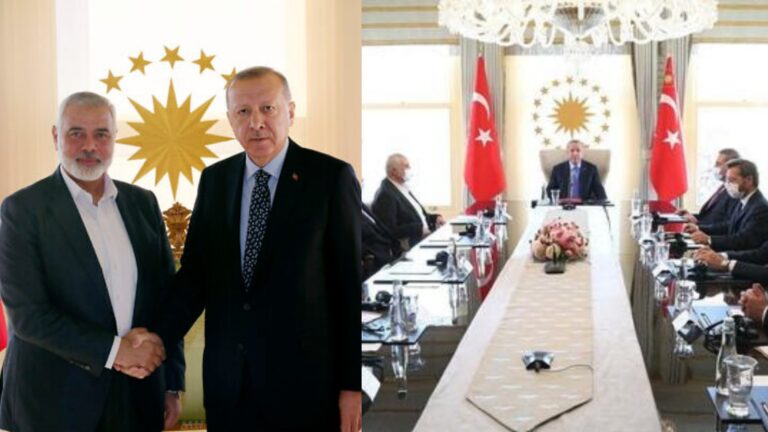


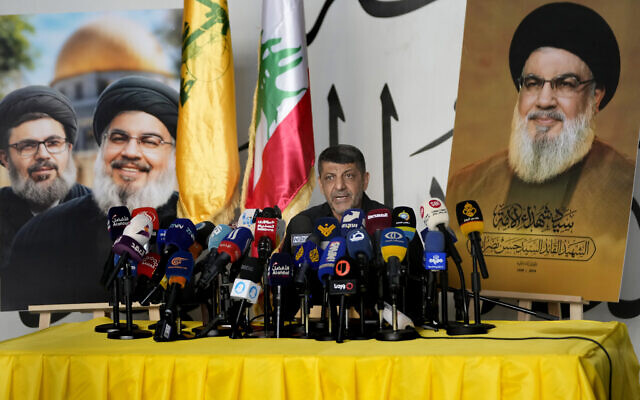
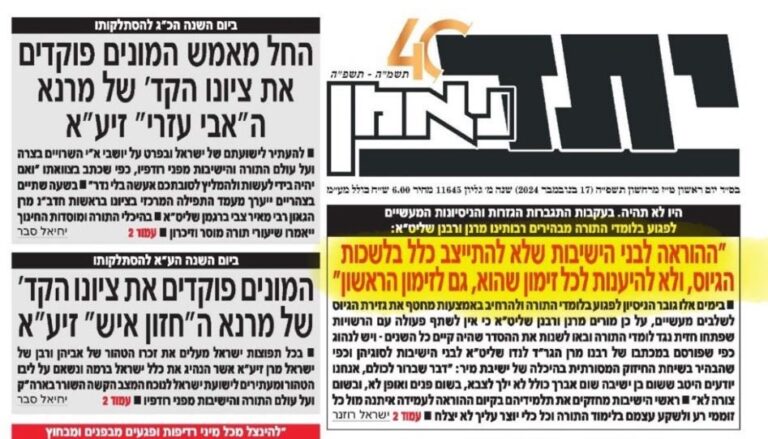

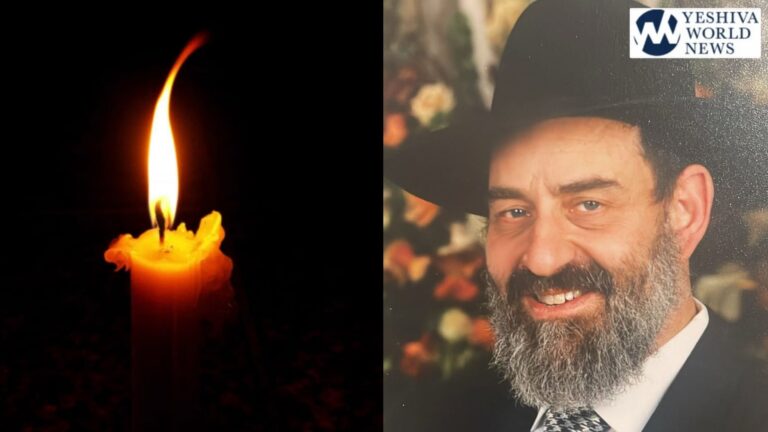
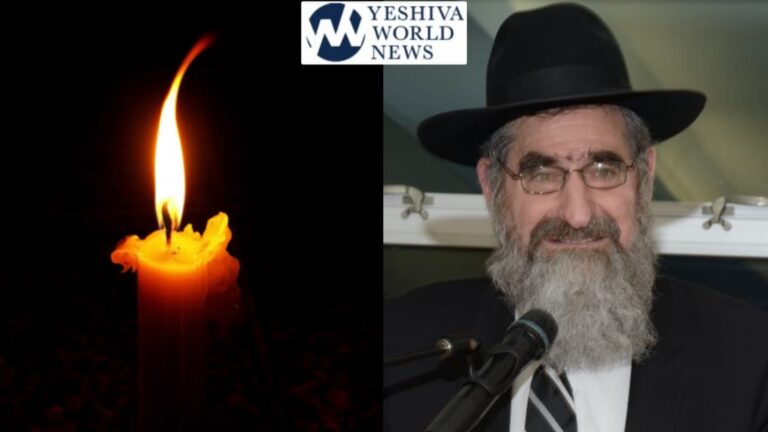


7 Responses
Unlikely. If Lapid thought that a civil war was likely between the Jews and the Zionists, he wouldn’t be in favor of giving modern weapons and training to yeshiva students (and note that the IDF isn’t too thrilled about fanatic zionists who might not follow orders – the army wants those who will obey orders).
The only weapon the Hareidim have is to offer to ally with the Muslims against the zionists, assuming the Arabs think this is credible. This was a real possibility in the 1920 (pre-holocaust, pre-Hevron pogram), but after the zionists shot De Haan the Arabs concluded that the hareidim were no longer a “player” in deciding the fate of Eretz Yisrael. In 1948, the hareidim threatened to oppose a state (which probably would have ened up in a smaller zionist entity as an American trust territory), and the offer to exempt yeshiva students was the bribe to support the decision by the zionist to go to war.
dear akuperma, where did you fall from?! The Chazon Ish fought with his life for this and you’re saying it was a bribe!!!
#1 – Once again, you fail to differentiate between the maistream rank and file charedim, who are largely zionist, and the Eida/NK fringe. Not to mention that even most members of the Eida aren’t crazy enough to consider an alliance with the Arabs today – except for those who don’t actually live in E”Y.
Thought it was the religious parties that were calling for a Civil War….bad words, bad vibes from both sides is not going to accomplish a thing.
It was a quid pro quo. We gave them what they wanted (a hecksher for the medinah) and they gave us what we wanted (continued freedom to sit and learn). Frankly, we might have been better off if instead of a permanent war (which inevitably intereferes with learning), we had a smaller, less sovereign country but with peace and security. Being an American trust territory wasn’t such a bad idea (consider all the lives lost in battle or terror, not to mention the time and energy that many frum Jews spend being soldiers instead of learning).
Maybe an American trust would work better but nothing will work with the arabs. Look at their cartoons. They almost all show the “evil zionist” as a frum guy with black hat, beard, jacket and payos. Sometimes the hat is a round one with brim up.
akuperma you keep repeating the same thing which is completely out of sync with what actually happened. I think you should just stop spewing and maybe sit and learn abit.